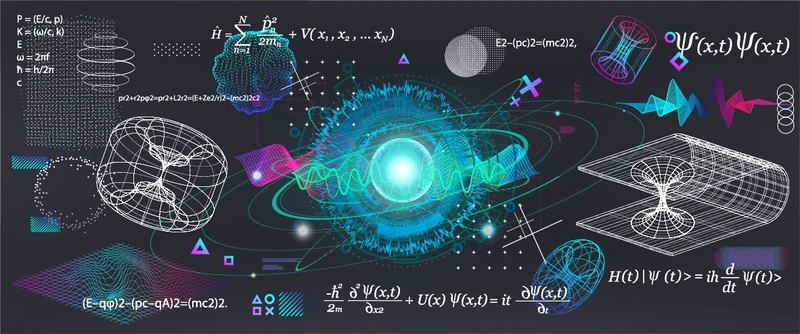Quick Link
Understanding Quantum Computing
Nowadays, quantum computing is not only a theoretical concept but also a topic of discussion among academics. It is quickly becoming a force for transformation in numerous industries. As we approach the dawn of yet another computing era, there is much we need to know about how quantum technology will alter the commercial and industrial landscape. Since there is so much to learn about quantum computing, this blog discusses its workings, possible uses, and how it will alter various industries.

When doing computations that a classical computer is unable to perform, quantum computing leverages the principles of quantum physics. Quantum bits, or qubits, have the ability to exist in several states simultaneously, a property that classical bits are limited to; they can only take the form of 0 or 1. Furthermore, qubits can entangle, meaning that no matter how far apart they are from one another, the state of one qubit depends on the state of another. These characteristics enable previously unheard-of speeds for processing and analysing complicated datasets on quantum computers.
Quantum Advantage
The “quantum advantage” refers to the effectiveness with which quantum computers resolve issues that classical computers are unable to address. With large datasets or intricate simulations, a classical computer falters and struggles, while a quantum computer succeeds because it can assess numerous options at once. This makes them especially useful for large-scale simulations, cryptography, and optimisation.
Portfolio Optimization
One of the biggest effects that quantum computing might have on finance is portfolio optimisation. The goal of traditional portfolio management approaches is to maximise profits while minimising risk by evaluating numerous possible combinations of securities. Such combinations will be processed more quickly by quantum computers, enabling them to achieve optimal investing strategies and possibly increase investor returns.
Risk Analysis
Risk analysis is set to undergo a transformation thanks to quantum computing. Financial firms frequently employ Monte Carlo simulations to calculate risk. This could require a lot of time and computational resources. In order to provide additional context for financial institutions’ decision-making and to provide greater insight into risk management, quantum algorithms would ensure that these simulations are conducted in a significantly shorter amount of time and more precisely.
Fraud Detection
Another area where quantum computing will have a big influence is fraud detection. Big transactional data sets can be analysed using quantum algorithms to look for trends and abnormalities that point to fraud. As a result, financial institutions will be far better equipped to identify and stop fraud, hence enhancing security.
Healthcare and Pharmaceuticals
Drug Discovery
The potential for quantum computing to expedite the discovery of novel medications by pharmaceutical companies. The computational capabilities of standard methods for simulating molecular interactions are restricted. Because quantum computers can simulate intricate biological processes and molecular interactions at a deeper level, it may be possible to identify prospective candidates sooner and cut down on the time and expense involved in bringing novel treatments to market.

Personalized Medicine
Additionally, quantum computing would enable more efficient genetic data analysis and personalised therapy. This may make it possible to create treatments that are tailored to a certain person’s unique genetic profile, which may improve the effectiveness and end results of the treatments.
Medical Imaging
Technological developments in quantum computing may also have use in medical imaging. Higher detail can be obtained for diagnostic and treatment planning with the use of quantum algorithms, which can improve the resolution and accuracy of imaging modalities including computed tomography and magnetic resonance imaging.
Supply Chain and Logistics
Route Optimization
For proper flow in international trade to be facilitated, supply chains and logistics must be well-organised and controlled. Transport and delivery routing can be optimised by quantum computing, resulting in reduced expenses and increased effectiveness. Certain quantum algorithms are able to search through an enormous number of possible routes and other factors to find the most efficient path for items to take.

Inventory Management
Quantum computing offers further benefits in inventory management in addition to this. Managing inventory levels, predicting demand, and minimising stockouts are intricate jobs that necessitate extensive data analysis. When analysing this data, quantum algorithms lower a company’s operating costs and increase the effectiveness of inventory management.
Risk Management
A company managing its supply chain may identify and reduce risks with the use of quantum computing. In order to increase a supply chain’s resilience, quantum algorithms evaluate data from multiple sources to forecast possible disruptions and develop plans to lessen their effects.
Energy Sector
Optimization of Energy Grids
The rules of the electricity grid management game may just be altered by quantum computing. Traditionally, the optimisation of energy distribution is limited by computational difficulties. Energy networks may now be analysed and optimised by quantum algorithms far more efficiently than in the past, improving energy distribution and lowering costs.
Renewable Energy Integration
These included storage and intermittency problems that arise with incorporating variable renewable energy sources into the grid. The integration of renewable energy sources into the energy supply mix will be optimised with the aid of quantum computing, which could result in better storage options and, ultimately, a more efficient and sustainable energy system.
Material Science
The fundamental component needed to produce energy-carrying technologies, materials science, will benefit from quantum computing as well. Through quantum simulation of material properties, researchers can discover novel materials with previously unheard-of levels of energy creation and storage.
Fabrication
Process Optimization
For example, computing in manufacturing can use data from multiple sensors to optimise production operations. For the majority of businesses, manufacturing entails meeting deadlines for output by streamlining production plans, cutting waste, and improving quality assurance. Algorithms solve optimisation issues far more quickly than traditional computers do, which lowers costs and increases output.
Product Design
Additionally, by creating more accurate models and simulations, this will be able to improve product design. As a result, more inventive and effective goods will be created to satisfy the needs resulting from the seemingly constant changes.
Supply Chain Management
Supply chain management, as is other sectors, is amenable to improvement by using computing. Reducing costs while increasing efficiency is the goal of demand forecasting, inventory optimisation, and improved logistics.
Transportation and Automotive
Autonomous Vehicles
Autonomous vehicle development will progress more quickly thanks to quantum computing. Autonomous driving systems work and are safer thanks to algorithms that process massive volumes of data from cameras and sensors.
Traffic Management
Additionally, computing can lessen congestion by enhancing the control of traffic movements around the city. Put another way, communities may make better decisions about traffic management by gathering data from flow-monitoring devices and using computers to recreate patterns in that same data.
Route Optimization
A log and delivery firm can employ computing to optimise the routes for their transport fleets. It will allow the reduction of time consumed by cars, lower fuel consumption, and greater efficiency.
Telecommunications
Network Optimization
Computing can be utilised in telecommunications to enhance network performance and optimise network management. Telecom businesses can improve the network’s efficiency and dependability by utilising algorithms that can simulate network behaviour and analysing data collected from network operations.
Cryptography and Security
Cryptography will be affected by quantum computing as well. A new class of resistant encryption techniques must be developed because the algorithm is capable of breaking many of the encryption techniques in use today. The future of secure data storage and communications will greatly benefit from this.
Data Compression
Consequently, these will improve methods of data compression. Consequently, more network resources can be employed effectively, enabling faster data exchanges. In order to give the best methods for data compression and, ultimately, to minimise the quantity of data that needs to be transferred, algorithms analyse the data more effectively.
Challenges and Considerations
Technical Challenges
Nevertheless, despite the potential, there are several technological obstacles. Building and maintaining computers is a very costly and labour-intensive process. The systems in place now are rather young. Once qubit stability, scalability, and error rates improve, computing may realise its full potential.
Ethical and Security Concerns
Security and ethical concerns are also raised by computing. Data security and privacy issues may arise as a result of computers becoming more powerful and potentially breaking current encryption methods. Since new encryption techniques will be developed, all of these issues will be taken into account in order to fulfil the obligations that come with employing technology.
Economic Impact
Computing will have such a profound economic impact that it may upend entire sectors and create new ones. However, it does bring up some very important points about the need to retrain the workforce and job displacement. Therefore, in order to seamlessly transition into the enabled future, policymakers and industry leaders will need to address these issues.
Final Thoughts
In the field of technology, computing is a disruptive revolution that will eventually change industries and the conventional approaches to solving complex problems. The ripple effects of computing will be felt throughout many industries, including manufacturing, healthcare, banking, and even telecommunications.
We will continue to work on overcoming the financial, ethical, and technical obstacles associated with computers. We would then be able to take advantage of this still-emerging technology to help spur innovation, which would in turn lead to efficiency, and open up new frontier prospects across several sectors.
The field of computing has a bright future ahead of it and has enormous potential to change industries. We’ll see the magic of computing in the future as scientists, engineers, and business titans push the boundaries of technology, creating new opportunities and upending our lives and workplaces.
For more content like this visit for online earning blogs visit autoearn or visit our Fcaebook page.


